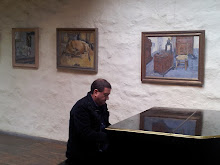Where do you get your news?
Greek Stoic philosopher Epictetus C.55 – 135 AD, said, "[t]he essence of human nature, is the faculty of choice."How do you choose your news? Are the papers your parents read the ones you read today? For me, the answer is yes. Until the internet arrived, I never thought much about where my news came from. When I got interested in the news, I just bought the paper my parents bought, The Sydney Morning Herald.
Today, we have thousands of choices to read the news from points of views that are so different it can be mind-boggling to sort out who is telling the truth.
Here is the way one person has decided to find their news. What is agreeable is true. What is disagreeable is false; hence fake news. You might guess that person is the current president of America, Donald Trump.
One can assume that what Donald Trump finds disagreeable hurts his views, and or America's views, as he sees it. And what he finds agreeable favours his views, and or American views.
If we only get our news from places that align with our pre-existing opinions, then we are likely never to find anything new in our news. That type of news just adds weight to our biases.
As a normal citizen, the favouring of that "news gathering" technique might cause you harm. Because you only get information that you already agree with and not having all the information will harm you. But as a president of a country who guides millions of people and is in charge of the most powerful nation on earth that is very dangerous. Because not everyone thinks like the president of America, and some of his thoughts may be wrong or misguided.
The radicalisation of people to whatever idea comes from people only accessing one side of the news or information. What is being taught at some universities and schools around the world is how news can be tested and verified. So a student will end up with a more balanced view of subjects. The issue with this can be there is so much opinion, views, and commentary in the news today that the real news is hard to find and difficult to process.
The principle that drives our filtering of the news is based upon our pre-existing views. If schools and universities can teach students how to process the news to find the facts of a story, I'd suggest that societies will end up with a more balanced and empathetic graduate. And not just people who have a one-world view and create policies based on that view.
